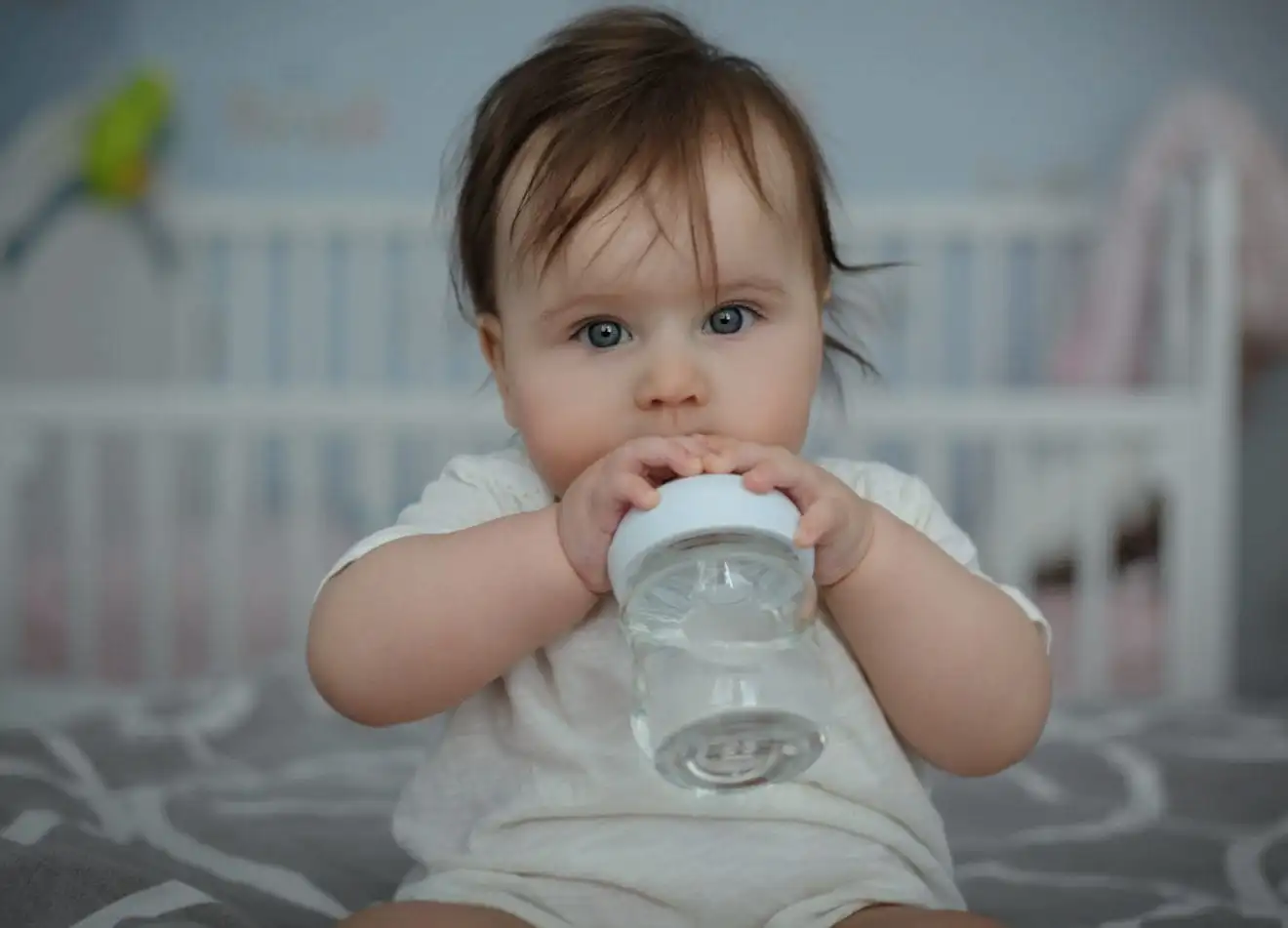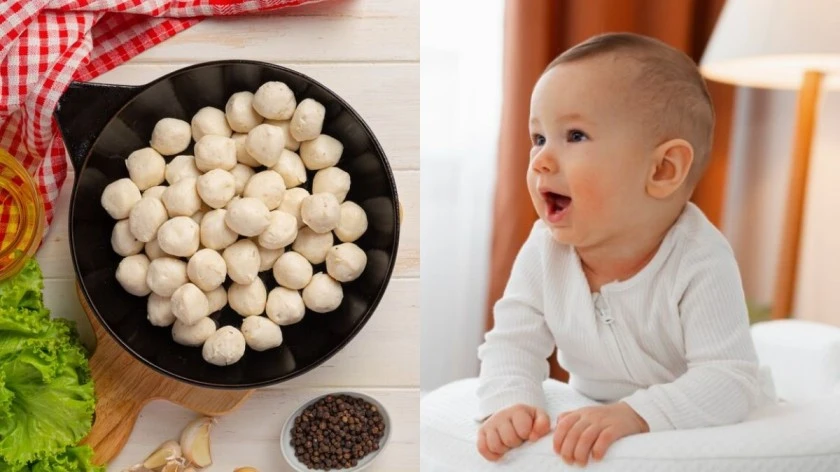Sugar water is a solution made with sucrose or glucose and water. It is used in medical care as an effective remedy for pain relief in babies. Besides, in some cultures, it is used as a traditional supplemental feeding along with breast milk. However, the use of sugar water in babies at home is discouraged, especially in the first six months of life.
In this MomJunction post, we tell you about sugar water use for babies.
Why Is Sugar Water Used For Babies?
There are several anecdotal and traditional uses of sugar water for babies. Some of the common ones are listed here.
- Aids in pain relief: In medical care, pharmaceutical-grade sugar water (or sweet sucrose water, as often called) is used to provide relief from pain. A research study showed that sugar water could provide moderate pain relief caused by an intravenous procedure, such as the use of vaccine shots during routine immunization in neonates.
Several other research studies documented the use of sugar water prior to surgeries or circumcision to provide pain relief to neonates and babies. However, the underlying mechanism for the analgesic effect of sugar water is still not clear. Thus, its daily use for your baby at home must be discussed with a pediatrician.
- Support upset stomach: Sugar water or glucose water is often used as a home remedy to provide necessary hydration to babies with an upset stomach. Parents use homemade ORS (oral rehydration solution) made up of warm water, white sugar, and common salt. However, there are no clinical studies to support this use.
- Might relieve constipation: Infant constipation is usually common in formula-fed babies and breastfed babies who are transitioning to solids. In both cases, sugar water is used as a traditional home remedy to relieve constipation. It is believed that sugar draws additional water into the small intestine and softens the stool. However, there are no clinical studies to support this belief.
- Is used for hiccups: In some cultures, sugar water is used to relieve hiccups in babies. However, clinical studies are sparse on this.
- Other purported uses: It was believed that sugar water could cure neonatal jaundice. However, on the contrary, research studies show that sugar water could be harmful in newborn jaundice.
Sugar water is also considered a remedy for colic and gas. However, it is important for you to know that none of these uses are backed by scientific evidence.
How Is Sugar Water Given To Babies?
The use of sugar water to relieve pain after a medical procedure should be done under medical supervision. A doctor may administer either through a syringe into the baby’s mouth or by placing it on a pacifier. Let the pediatrician decide and, if necessary, give sugar water to your baby.
If you want to manage pain at home, then the pediatrician can recommend appropriate medications or pain management techniques. You may also try psychological pain reduction strategies like NNS (non-nutritive sucking), breastfeeding, and skin-to-skin contact.
Why Is Sugar Water Not Recommended For Babies?
The World Health Organization (WHO) recommends “no use of water” for babies under six months of age. For babies older than six months, water can be introduced in small quantities. However, the use of sugar water needs to be avoided due to the following reasons.
- Could suppress appetite: Sugar water prepared at home can be high in sugar, which can suppress appetite and reduce milk intake in exclusively breastfed infants. The same can be expected in formula-fed infants, where the frequency and duration of the feed could come down.
- Can cause electrolyte imbalance: Ingestion of excess sugar water increases the risk of disturbing the electrolyte balance in the body. In severe cases, a baby may even experience water intoxication that can cause seizures.
- Baby might develop a preference for sweet foods: Generally, babies are born with a preference for sweet food. Regular intake of sugar water during their weaning phase may cause them to develop a preference for sweet foods. Besides, sugar water use does not serve any nutritional purpose.
- Possible exposure to certain health risks: Consumption of excess sugar water can put a baby at an increased risk of excess weight gain, dental cavities, heart disease, diabetes, and fatty liver disease (9). This concern is crucial, especially in babies who are on infant formula, which may contain sugar in various forms, like corn syrup.
Excess sugar water intake may even cause an upset stomach and spit-up in babies.
If you intend to try sugar water for your baby older than six months, then you should do so after consulting a pediatrician.
How Is Sugar Water Prepared For Babies?
There is no standard recipe to prepare sugar water at home. Try to use as little sugar as possible. Here is one such recipe that you may try under pediatric guidance.
You will need:
- 1 cup plain water (boiled)
- 1tsp sugar
How to:
- Let the boiled water cool until it becomes slightly warm. Take a cup of water and add one teaspoon of sugar to it.
- Mix the sugar in water thoroughly. Ensure no granules are left as they could block the nipple of the bottle.
- Taste a drop of the mix. If you feel it is concentrated, then add additional water. However, do not add more than 10-20ml since excess water could dilute the solution.
Note: Avoid giving more than the recommended amount of sugar water to your baby. A concentrated sugar solution can have detrimental effects on an infant’s health, in the long run. Therefore, use it only when required.
A pediatrician should decide the use of sugar water or sweet sucrose water for relieving the baby’s pain after a medical procedure. Parents must avoid its use for pacifying the baby in general. If your baby is in constant pain or is colicky, then consult a doctor, who can recommend you safe alternatives to sugar water.








